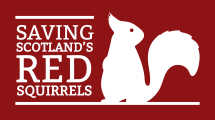…questions to the panel. We will also have a set of pre-planned questions for each session to ensure no awkward silences! Will I receive CrowdComms training? Yes. Once the programme is finalised our CrowdComms technician will coordinate an online training session for all contributors. They will also provide guidance via email. What will happen to the presentations after the conference?… […]
Read More…
…the annual Great Scottish Squirrel Survey has become the most important event for getting a snapshot of the distributions of both red and grey squirrels for comparisons year to year. Programme Manager Nicole Still said: “The public play an essential role in our work and red squirrel conservation across Scotland. The sightings data collected gives us valuable insights on how… […]
Read More…
…in situ. Complete your Tetrad Data Sheets, including your volunteer hours and collected stickies, posting these in the addressed pre-paid envelope provided. If you have been storing bait, you are welcome to use this in your own garden. For any other equipment you have such as cameras and spray bottles, please keep hold of these for now. When Covid-19 restrictions… […]
Read More…
…network. Visit our volunteer network directory to find out if there is a group operating in your area. Contact us or join our online Community Hub to express interest. Join a local volunteer network Landscape-scale community action is the key to the long-term survival of Scotland’s red squirrels. The project is supporting red squirrel networks across our priority areas. The… […]
Read More…
…project’s spring surveys in both 2020 and 2021. These annual systematic surveys, which used baited squirrel-hair sampling boxes at over 200 specific locations, provided robust distribution data for both red and grey squirrels that was invaluable for comparing the fortunes of squirrels from year-to-year. Project Manager Dr Mel Tonkin said: “Without the spring survey data, we need the help of… […]
Read More…
2020 was a year of change for many, and for Saving Scotland’s Red Squirrels, we were fortunate enough to welcome in new members of the team while overcoming the challenges of covid-19. Having worked from home since starting their roles, we wanted to take the opportunity to bring forward the newest faces of SSRS from behind their computer screens… […]
Read More…
…areas for red squirrels to survive. SSRS has been working with support from Aberdeen City Council, volunteers and residents across the city to remove the invasive grey squirrels. Thanks to the efforts of the project, red squirrels are now being seen all across the North East, and have returned to many gardens in the city. In 2024, a… […]
Read More…
…did not spread as quickly to the Central Belt as first initially expected. However, complete containment has proved difficult and the disease continues to slowly expand, with the first death of a red squirrel from squirrelpox north of the Central Belt confirmed in April 2024 just north of Dunfermline, Fife. Local communities are key to protecting the PARCs. As part… […]
Read More…
…Scotland. We wish them both well in their new ventures and thank them for all their hard work on behalf of red squirrel conservation in Scotland. We will miss Ryan’s dry humour and Lucy’s calm approach to absolutely everything. If you would like to work with us at Saving Scotland’s Red Squirrels follow the links for more information: https://scottishwildlifetrust.org.uk/job/conservation-and-control-officer-stirlingshire-argyll-trossachs/ https://scottishwildlifetrust.org.uk/job/project-officer-south-east-scotland-saving-scotlands-red-squirrels/… […]
Read More…
…commercial conifers – to red squirrels. The researchers, together with Ulster Wildlife, bring into question red squirrel conservation strategies that focus on the planting of such forests. Scotland’s conifer forests In Scotland, non-native conifer forests are planted for commercial purposes. By the 1930s red squirrel populations were in serious decline in the UK, but the extensive conifer planting that… […]
Read More…
